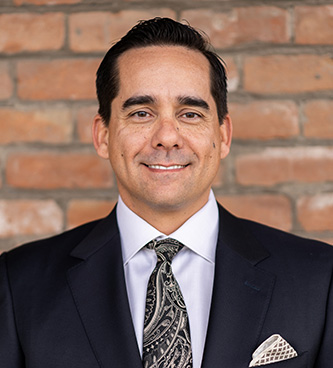The strongest personal injury cases are those in which one party is undeniably responsible for the damages. In such cases, liability may even quite literally be spelled out for the claimant. For example, an adverse motorist may have been cited for speeding, running a red light, failing to yield, or following too closely. If those improper actions caused personal injuries to another, liability is not a question. Under such circumstances, insurance companies are more likely to accept liability, and your claim can be efficiently resolved pending settlement negotiations regarding damages.
With that said, liability is not always so clear-cut. Sometimes responding officers do not give out citations. In other scenarios, the responding officer gives both the adverse motorist and the injury victim a citation. In these cases, proving that the adverse motorist is liable for your injuries can be complicated. However, we, at Torgenson Law Arizona Injury Lawyers , are here to remind you that all hope is not lost. Simply because there is a question of liability does not mean that it does not exist.
In Arizona, every driver on Arizona’s roadways has a duty to drive carefully so as not to pose unreasonable risks of harm to others. If a motorist violates this duty and causes personal injuries, it is irrelevant whether or not they are cited for their actions. They will be liable for negligence. Proving that the adverse motorist breached this duty of reasonable care requires a complete understanding of the incident. Was the adverse driver distracted? Was he or she texting while driving? Did the adverse driver fail to use a turn signal? These are facts that may not appear on a police report, which may be the reason the adverse motorist was not cited. At Torgenson Law, we will thoroughly investigate such cases to show the adverse party was negligent in their operation of their vehicle.
Additionally, when a motor vehicle accident occurs, and police arrive at the scene, the responding officers will fill out a crash report. These crash reports include a narrative of the crash detailing exactly what happened. However, in most cases, the officer did not actually witness the crash. Instead, his narrative is based solely on the accounts of witnesses who observed the crash. Typically, the crash report will include the witnesses’ names and contact information. Sometimes witnesses have more information about the crash than was included on the police report. It can be useful to obtain full statements from these witnesses, which can help establish that the adverse motorist was at-fault for the crash.
Almost all personal injury claims will face their fair share of challenges. Whether it is proving a specific damages amount or establishing liability, resolving a personal injury claim can truly be a fight. Accordingly, it is in your interest to hire an experienced Phoenix car accident lawyer that is well versed in combatting the arguments that insurance companies and opposing counselors regularly put forward. At Torgenson Law, we understand what it takes to prove your personal injury claim. If you or a loved one suffers a personal injury, do not hesitate to call Torgenson Law at (602) 726-0747.

John Torgenson is a highly experienced personal injury lawyer with over 20 years of practice in Arizona. He earned his Bachelor’s degree from the University of Utah and his Juris Doctor from Notre Dame. John has a proven track record of securing substantial verdicts and settlements, including an $8.25 million recovery for a gunshot injury victim. His expertise has earned him AVVO ratings and recognition as a Super Lawyer.
John is also a sought-after lecturer on personal injury law, sharing his extensive knowledge with peers and aspiring attorneys. Beyond his legal practice, John is an avid golfer and actively supports organizations like the Military Assistance Mission, Arizona School for the Arts, Page Balloon Regatta, University of Arizona Foundation, Junior Achievement of Arizona, and the Tim Huff Pro Bono Golf Classic.
Passionate about advocating for injury victims, John dedicates his career to battling insurance companies and corporate interests, ensuring that the rights of those who are hurt are vigorously defended.
